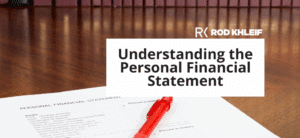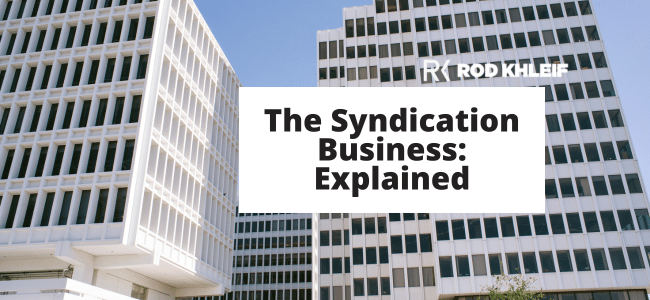How to Maximize Cash Flow and Tenant Satisfaction in Multifamily
Effective property management is no longer just about collecting rent and fixing leaky faucets. In today’s market, real estate asset management is important. It affects your profits. It also keeps tenants satisfied. Additionally, it helps your portfolio increase in value.
If you’re serious about building and maintaining a high-performing multifamily asset, you need more than good intentions. You need systems, tools, and a proactive mindset.
In this guide, we’ll explore the most important 2025 strategies for managing multifamily properties to maximize both cash flow and tenant satisfaction.
Why Strategic Property Management Matters More Than Ever
Real estate markets in 2025 are dynamic. Rising interest rates, inflationary pressures, labor shortages, and shifting tenant expectations have made it more important than ever to operate efficiently and intelligently.
Done right, great management:
-
Increases NOI through tenant retention and rent optimization
-
Protects asset value through consistent maintenance
-
Creates community, which leads to better reviews and fewer vacancies
-
Enhances lender confidence and long-term refinance potential
Now, let’s break down the systems you need to build or refine to operate like a pro.
1. Tenant Screening: Your First Line of Defense
Great tenants make great properties. But attracting and retaining them starts long before move-in day. It starts with a tight, legally compliant screening process.
Key Components of a Modern Screening System:
-
Credit & background checks: Use automated platforms like RentSpree, TurboTenant, or TransUnion SmartMove for instant, FCRA-compliant screening
-
Income verification: Require 3x rent as a baseline, and request recent pay stubs or tax returns
-
Landlord references: Speak directly with previous landlords to ask about payment history, property care, and overall behavior
-
Identity verification: Use software to confirm SSN validity and cross-check ID documents
-
Fair Housing compliance: Follow all federal, state, and local rules to avoid discrimination and potential lawsuits
Pro Tip: Prequalify tenants with a short online form before accepting full applications in order to save time and protect your calendar.
2. Maintenance That Prevents Emergencies (and Complaints)
Reactive maintenance is expensive. Preventive maintenance protects cash flow and reduces turnover. In 2025, proactive maintenance is a competitive advantage.
Build a Proactive Maintenance Program:
-
Quarterly inspections: Check HVAC filters, plumbing, smoke detectors, and visible wear
-
Annual system reviews: Hire professionals to inspect boilers, fire suppression, and electrical systems
-
Exterior maintenance calendar: Track landscaping, gutter cleaning, roof assessments, and seasonal repairs
-
Technology-enabled work orders: Use platforms like AppFolio, Buildium, or Propertyware to track service requests in real time
KPI to Watch: Track work order completion time. The goal should be under 48 hours for non-emergency issues.
3. Structuring Effective Lease Agreements
Your lease is your safety net. It should clearly define:
-
Rent amounts, due dates, grace periods, and late fees
-
Responsibilities for utilities and repairs
-
Rules around pets, smoking, noise, and common area use
-
Renewal, termination, and subletting procedures
-
Legal disclosures required by your state (e.g., mold, bedbugs, lead paint)
Always customize your lease to reflect local laws and the property’s unique features. Consider offering tiered lease lengths or incentives for automatic renewal to boost retention.
Bonus Tip: Include a “community standards” page outlining expectations around noise, cleanliness, and common areas. It sets the tone for your culture and helps with enforcement later.
4. Vacancy Management: Fill Units Fast and Smart
Empty units = lost cash flow. But filling vacancies isn’t just about speed—it’s about attracting the right tenants with the right message.
2025 Vacancy-Filling Strategies:
-
Hyper-local targeting: Use Facebook Ads and Google Local Campaigns targeting the 2–5 mile radius around your property
-
AI-generated listings: Use ChatGPT or Jasper to write compelling, accurate descriptions for Zillow, Apartments.com, and Rent.com
-
360° virtual tours: These are now expected, not optional—especially for out-of-area relocations
-
Automated lead funnels: Route inquiries through chatbots or CRMs that schedule tours and collect prequal info
-
Text message follow-up: Prospects are 3x more likely to respond to SMS than email
Media Tip: Invest in drone shots of the building and neighborhood. Visual appeal sells, especially on mobile.
5. Rent Optimization and Financial Oversight
Rents don’t manage themselves. And neither does your NOI.
Rent Management Best Practices:
-
Annual rent reviews: Adjust rents based on market comps, demand, and local regulations
-
Dynamic pricing tools: Tools like RentPush or RealPage Revenue Management allow rent to adjust based on real-time demand
-
Late fee enforcement: Implement automatic late fees and enforce them consistently
-
Delinquency reporting: Use property management software to track late payments, payment plans, and court filings if necessary
-
Weekly financial reporting: Review rent roll, AR aging, and variance reports every week. (not just once a month)
Pro Tip: Always know your break-even occupancy and cash-on-cash return at current rents. Don’t guess. model it.
6. Professional vs. Self-Management: What’s Right for You?
If you’re new to real estate or scaling beyond 10–15 units, hiring a property manager might make sense.
Advantages of Professional Property Management:
-
Proven tenant screening and leasing systems
-
Economies of scale in maintenance and marketing
-
Legal compliance and eviction handling
-
Financial reporting and audit-ready accounting
-
24/7 emergency response without waking you up
But…
Self-Management Can Work If:
-
You live nearby and have strong systems in place
-
You’re building sweat equity before outsourcing
-
You’re optimizing for high-touch tenant relationships
-
You have a clear plan to scale out of it soon
Decision Metric: If property management is taking more than 10 hours per week or limiting your ability to pursue new deals, it’s time to delegate somewhere else.
7. Tenant Satisfaction as an Asset Multiplier
In 2025, online reviews, word-of-mouth, and referrals drive occupancy.
Happy tenants:
-
Stay longer
-
Complain less
-
Pay on time
-
Refer friends
Here’s how to improve satisfaction:
-
Respond to maintenance requests quickly
-
Offer smart home features (locks, thermostats, wifi packages)
-
Run quarterly surveys and act on feedback
-
Celebrate milestones (lease renewals, birthdays, holidays)
-
Add community touches: dog treats in the office, free coffee in the lobby, clean common areas
Retention Metric: Aim for renewal rates of 65%+ annually.
Final Thoughts from Rod Khleif
Multifamily real estate is a business, and the better you run that business, the bigger your returns.
You don’t need to do it all at once. But if you commit to building a professional, data-driven management system, you’ll protect your downside, increase tenant loyalty, and drive long-term wealth.
Effective asset management isn’t flashy, but it’s what turns good properties into great ones.
Let’s create Lifetime Cashflow!
— Rod












